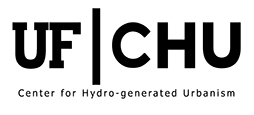S-A7: COLLECTIVE ACTION: DESIGN-BASED LEADERSHIP FOR RESILIENCE AND CLIMATE ADAPTATION IN FLORIDA
In 2017 Climate Central reported a list of American cities most at risk from climate change. Of the 25 cities listed, 22 are in the state of Florida. Significant efforts to prepare and adapt are ongoing at the municipal and county level but Florida lacks a robust statewide effort to plan for the results of climate change. Given the disproportionate share of need across the state, Florida Universities are aggressively working towards research, pedagogy, and outreach in the rapidly developing realm of coastal resilience and adaptation. Design-based institutes, centers, and research collaborations are producing trans-disciplinary research to help communities adapt to increased vulnerability and risk.
These efforts are significant not only for the communities served but for the processes that guide, govern, and reward effective university research coupled with public action. Design research is proving to be an effective methodology to connect a broad coalition of university researchers – spanning the humanities, arts, and sciences – to climate-related challenges.
However, climate adaptation is going to require an integrated vision statewide. In addition to reflection on individual challenges and successes, a primary goal of the panel is to identify opportunities, structures, and mechanisms for growing a statewide network of design-centered resilience-based research.
Session Organizer(s):
- Jeff Carney, Associate Professor, University of Florida, Associate Director, FIBER
Presenter:
- Nancy Clark, Associate Professor, University of Florida, Director, UF Center for Hydro-generated Urbanism
- Jeff Huber, Associate Professor, Florida Atlantic University
- Marilys Nepomechie, Professor and Associate Dean, Florida International University
For more info visit NCSE website

